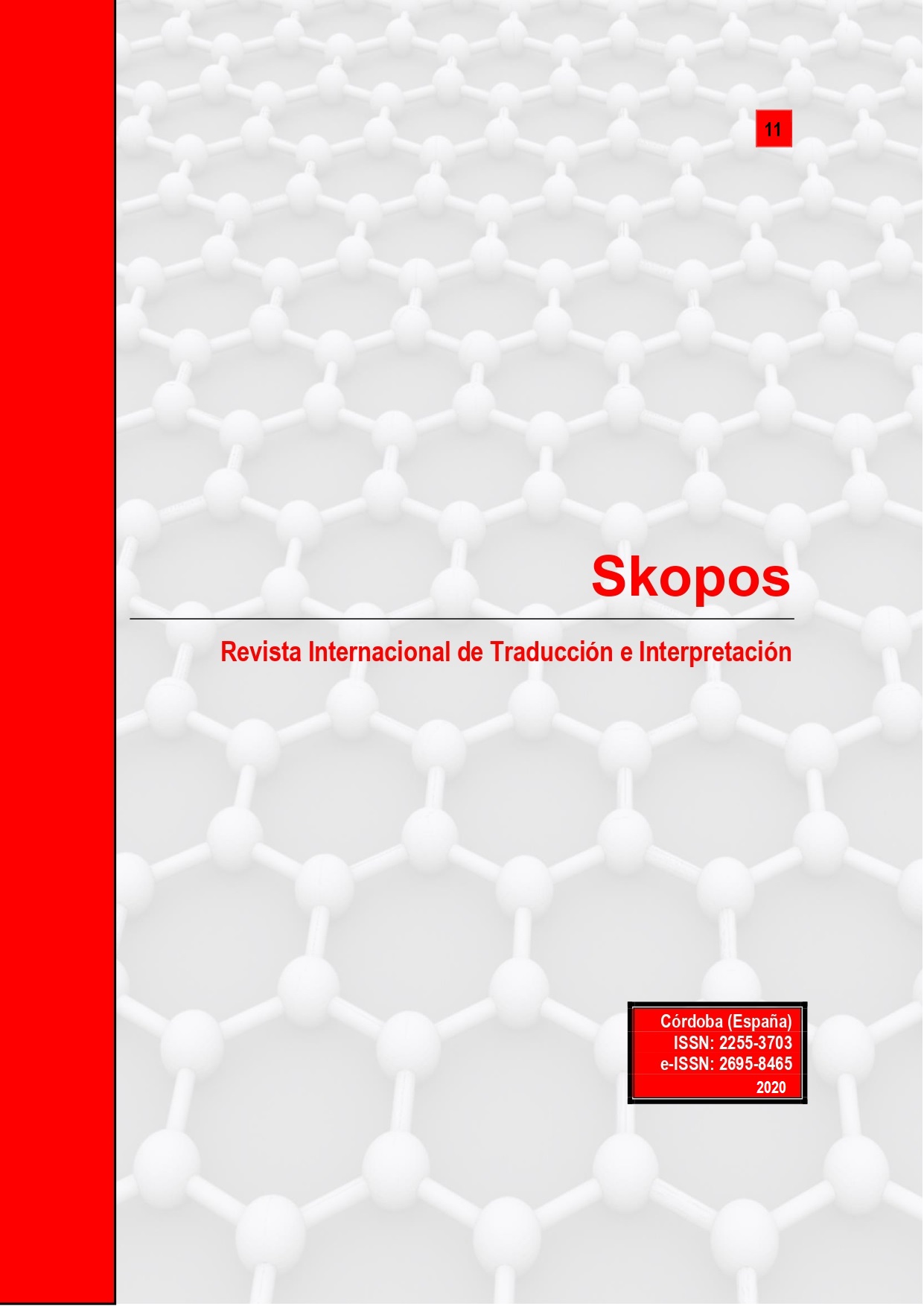La transversalidad en la era post-Bolonia: el cine como apoyo en la didáctica de la traducción jurídica
DOI:
https://doi.org/10.21071/skopos.v11i.12961Abstract
Legal Translation is an essential field in the Bachelor’s Degree of Translation and Interpreting. The traditional debate on how to train legal translator adds up to the Bolonia statement highlighting the need to train in skills and to the need to create materials for a group of students who, often, lack any knowledge of Law. Moreover, they usually believe that Legal Translation will be a tough subject. Likewise, we are before a generation which needs more stimulus to learn, so that teachers must come up with ways of keeping students’ attention and interest.
In the study of law, related to the subject of legal translation, cinema has become one of the most attractive tools. On the one hand, it increases the interest of the student for a legal subject. On the other, it can allow them to better understand the issue. If well planned cinema can become one of the best tools for teachers, who must leave behind the traditional role of master lecture to look for new ways of teaching. So, after dealing with the role of Law and Cinema, the skills in legal translation and what Bologna has meant for the Bachelor’s Degree of Translation and Interpreting, we will analyse why a film in the subject of legal translation can be useful through the analysis of compared law specific elements.
Downloads
Published
How to Cite
Issue
Section
License
Política propuesta para revistas que ofrecen acceso abierto. Aquellos autores/as que tengan publicaciones con esta revista, aceptan los términos siguientes:
- Los autores/as conservarán sus derechos de autor y garantizarán a la revista el derecho de primera publicación de su obra, el cuál estará simultáneamente sujeto a la Licencia de reconocimiento de Creative Commons que permite a terceros compartir la obra siempre que se indique su autor y su primera publicación esta revista.
- Los autores/as podrán adoptar otros acuerdos de licencia no exclusiva de distribución de la versión de la obra publicada (p. ej.: depositarla en un archivo telemático institucional o publicarla en un volumen monográfico) siempre que se indique la publicación inicial en esta revista.
- Se permite y recomienda a los autores/as difundir su obra a través de Internet (p. ej.: en archivos telemáticos institucionales o en su página web) antes y durante el proceso de envío, lo cual puede producir intercambios interesantes y aumentar las citas de la obra publicada. (Véase El efecto del acceso abierto).






